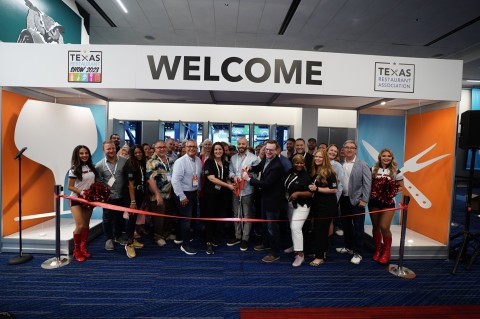By: Marbet Lewis
We heard a very loud collective last call from thousands of alcohol retailers last month including bars, restaurants, movie theaters and hotels throughout the country. Last week, the White House released the nation’s “Guidelines for Opening America Again,” which largely shifted the economic revitalization burden to state governors and local officials to plan and coordinate re-opening efforts. The lack of a national re-opening plan and timeframe leaves many small and large business owners, especially those in the on-premise hospitality industry, in the dark with respect to when their businesses will once again open to the public and how they will be allowed to service their patrons. Unfortunately, then, restaurants and other hospitality operators are left with the frustrating task of planning for an uncertain future with limited tools, rigid regulations, and unknown long-term service requirements.
The continued need for aggressive social distancing and shelter-at-home requirements has forced the majority of our on-premise hospitality and retail establishments to radically shift operations and close their doors to patron traffic. It is clear that the long-lasting effects of the novel coronavirus will require ongoing social distancing measures and continued adjustments in operations for on-premise hospitality retailers. The on-premise hospitality industry’s “return-to-normal” is unknown, not only with respect to the full-opening timeframe, but also in what “normal” operations will mean with social distancing protocols remaining in place for the foreseeable future. Undoubtedly, the hardships and financial loss suffered by the on-premise hospitality retailers will continue to impact the industry as patron traffic rebounds while operational costs increase.
Since the massive and shocking closures that took place during the week of March 16th, all types of restaurants and other on-premise hospitality venues have been in constant “pivot mode” as they adjust to new protocols, safety recommendations, and rapidly changing emergency orders that provide little guidance on service details. For example, the restaurant industry realized minor relief as emergency orders throughout the U.S. slowly allowed for closed restaurants to provide take-out and delivery of food and alcohol sales. However, the general orders did little to offer guidance on how alcohol could be sold “to-go” and the types of containers that could be used. The flexibility, while welcomed, came with the new challenges of finding permissible containers and coveted “growler” containers for beer, which have been in very high demand and short supply. After much debate and ongoing industry inquiries, various jurisdictions have relaxed requirements on to-go alcohol orders by allowing restaurants to use standard closed containers rather than limiting sales to factory sealed containers. While one minor issue is addressed, several others arise causing the restaurant industry to innovate and adjust to an unstable consumer environment.
Ongoing industry innovation has undoubtedly provided the global community with necessary essential services in meal delivery and food preparation. Restaurants have radically adjusted menus to account for different food preparation and service requirements focusing on quick turn-around and safe delivery. These innovations include the launch of restaurant grocery services, ready-to-cook meal options, more convenience focused entrée options including family style catering, new packaging and “no touch” protocols, and integration of delivery services for traditional luxury and sit-down service restaurants.
These innovations come with increased supply and operational costs, including the high costs of transforming point-of-sale and ordering systems to account for off-premise sales, at a time when profit margins are at an all time low.
Unfortunately, Congress’ $2.2tn stimulus package did little to touch on the hospitality industry’s financial crisis. With financial aid, alcohol retailers may be able to supplement lost profit and sustain their workforces, but long-term survival will require focused attention on new operational models and adjusting to post-COVID-19 service protocols. Aside from the loss of sales and customer traffic, these businesses are also dealing with shortages in supplies and increased operational costs arising from radical shifts in how they can conduct their businesses. Unlike traditional retail stores that have been able to more seamlessly move to online platforms, the hospitality industry depends on human interaction and socialization. Plus, one of the industry’s main high demand products, alcoholic beverages, does not easily transition into pick-up and delivery service. Ultimately, then, the take-out/delivery only model may not be worth the trouble for smaller chains and independent restaurant owners should closures and other business interruption issues last through summer months.
While other industries are struggling to renegotiate business terms with vendors and landlords to survive closures, on-premise alcohol retailers are more limited in the types of aid they can receive from their key business partners. Alcohol trade-practice laws in the U.S. prevent alcohol suppliers from supporting retailers through extensions of credit or other brand and marketing support unless specifically exempted under federal or state laws. Trade practice laws commonly prevent extensions of credit, consignment sales or other negotiated support such as contributions of marketing funds or purchasing incentives. These post-prohibition laws prevent effective inter-industry collaboration and assistance through the crisis between suppliers and on-premise alcohol retailers that need to benefit from more flexibility in negotiating purchasing and credit terms, as well as specific supplier support.
We’ve seen what happens when disasters like hurricanes and snowstorms threaten daily life and business operations. However, the business interruptions caused by the aggressive need for social distancing are lasting longer on a global rather than regional scale. On-premise hospitality and alcohol retailers will soon face the emerging, germophobic public and the difficulties in implementing new heightened sanitation producers, employee health-screening and sick-leave policies and potential wide-spread capacity restrictions. These obstacles present ongoing sales difficulties for the alcohol industry that should be addressed collaboratively to develop new industry standards in product packaging and service protocols.
Overall, the alcohol industry would benefit from integrated industry collaboration between suppliers and retailers to address these current operational concerns and work toward the re-fashioning of traditional alcohol retail sales regulations that may not work in the post-coronavirus world. Food and alcohol take-out and delivery options have helped the industry survive, modernize and maintain some level of active sales through the crisis. The integration of these services for restaurants that were not capable of digital online orders or take-out service pre-pandemic was quick but not without extreme herculean effort in developing and implementing new technology, internal service and food preparation protocols and alcohol delivery operations. Common sense dictates that some level of these services will continue to be in high demand until the public at large sheds the coronavirus fears and the medical community is able to develop and launch vaccines and effective treatments for COVID-19. Food and alcohol suppliers will need to work with their retail clients to develop new packaging standards that allow for easier take-out/delivery options, new marketing and promotional programs to help instill confidence in the post-coronavirus consumer and consolidated legislative lobbying efforts to modernize restrictive trade practice and other operational laws that will need to adjust to allow for new credit and purchasing incentives options as well as permanently allow for continued integration of social distancing take-out/delivery options.
The nationwide impact of on-premise hospitality business closures is deep and far-reaching. Nonetheless, the critical need to adjust to social distancing is keeping the on-premise hospitality industry alive although far from thriving. The industry’s innovative energy will need to continue through phased re-opening plans to promote continued legislative flexibility and modernization of outdated alcohol regulatory laws. Our initial short-term emergency plans and operational adjustments may just set the foundation for long-term alcohol service modernization and thriving on-premise operations.
Marbet Lewis is founder of Spiritus Law in Miami, Fla.








